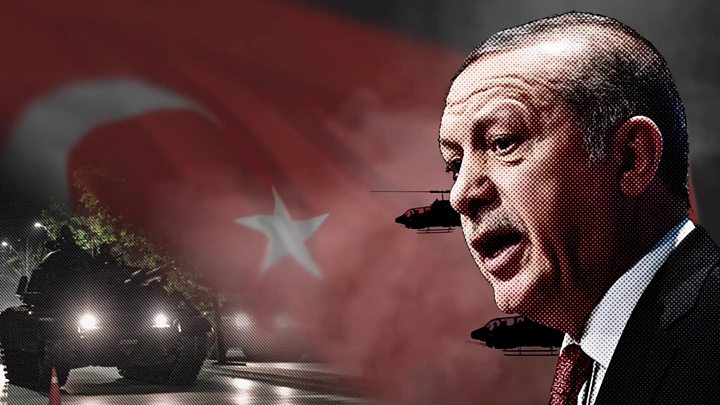Russia has been pressing demands that the US give it access to two diplomatic compounds seized in the US last year.
After high-level talks between both sides, one Russian official involved said the row had "almost" been resolved.
Russia has been angered by the move, with Foreign Minister Sergei Lavrov calling it "daylight robbery".
In December the US expelled 35 Russian diplomats and shut the compounds over suspicions of meddling in US elections.
The talks saw US Undersecretary of State Thomas Shannon host Russian Deputy Foreign Minister Sergei Ryabkov in Washington on Monday.
Mr Ryabkov sounded upbeat after three hours of talks with the American diplomat.
He was asked by reporters if the spat over the diplomatic compounds had been settled, and he replied: "Almost, almost."
US officials did not comment and there has been no official press briefing.
The meeting was meant to have been held in June in St Petersburg, but was cancelled after the US government added 38 individuals and organisations to its list of sanctions over Russian activity in Ukraine.
Before the talks Russia made clear it was demanding restored access to the facilities.
"We consider it absolutely unacceptable to place conditions on the return of diplomatic property, we consider that it must be returned without any conditions and talking," Kremlin spokesman Dmitry Peskov said.
Mr Lavrov said that this was not the way decent and well-brought-up people behaved.
"How can you seize property which is protected by a bilateral, inter-governmental, ratified document and, to return it, act according to the principle 'what is mine is mine, and what is yours we'll share'?" he said during a visit to Belarus.
Last week Russia said it was considering "specific measures" in retaliation, including the expulsion of 30 US diplomats and seizure of US state property.
Ex-President Barack Obama acted against Russia after US intelligence sources accused Russian state agents of hacking into Democratic Party computers to undermine Hillary Clinton's presidential campaign.
Which compounds were seized?
- The US seized a Russian diplomatic property on Maryland's Eastern Shore - a sprawling 45-acre (18.2-hectare) retreat. The facility, acquired during the Cold War, was used by Russian diplomats for recreation, such as tennis and swimming. But it also had sophisticated communications, and US officials said it doubled as a spying outpost
- The other diplomatic property is a New York mansion at Glen Cove, Long Island. It has 49 rooms and is similarly surrounded by woods. Like the Maryland mansion, its location is ideal for eavesdropping on US communications, US officials say
President Donald Trump's team is under investigation over alleged Russian collusion during last year's presidential campaign. The Kremlin has denied interfering in the election.
The Obama sanctions came on top of existing Western sanctions imposed because of Russia's role in the Ukraine conflict.
At the time Mr Putin refrained from tit-for-tat retaliation - unlike in previous diplomatic spats. Mr Trump had been elected to succeed President Obama just weeks before.
Russia says President Trump presented "no plan to resolve the crisis" when the issue was raised at the G20 meeting in Hamburg on 7 July.
Russia would retaliate if no compromise was reached at the meeting between Mr Ryabkov and Mr Shannon, the Russian newspaper Izvestia reported.
Analysis: Retaliation threat
Barbara Plett Usher, BBC News, Washington
Russian officials welcomed the tone of the recent meeting between the two presidents.
But the political climate in Washington has only grown more toxic, with the ongoing inquiries into allegations of Russian meddling in the presidential election, and possible collusion with the Trump campaign.
That makes any concessions to Moscow controversial.
Russia's threat to expel some American diplomats if it does not get its property back would further complicate the strained relationship.


























